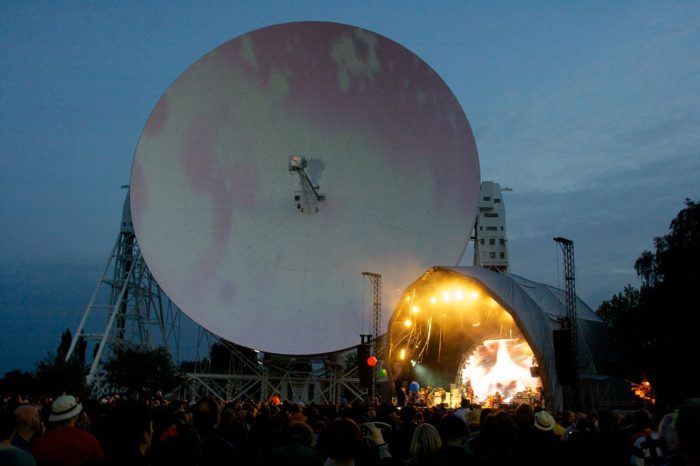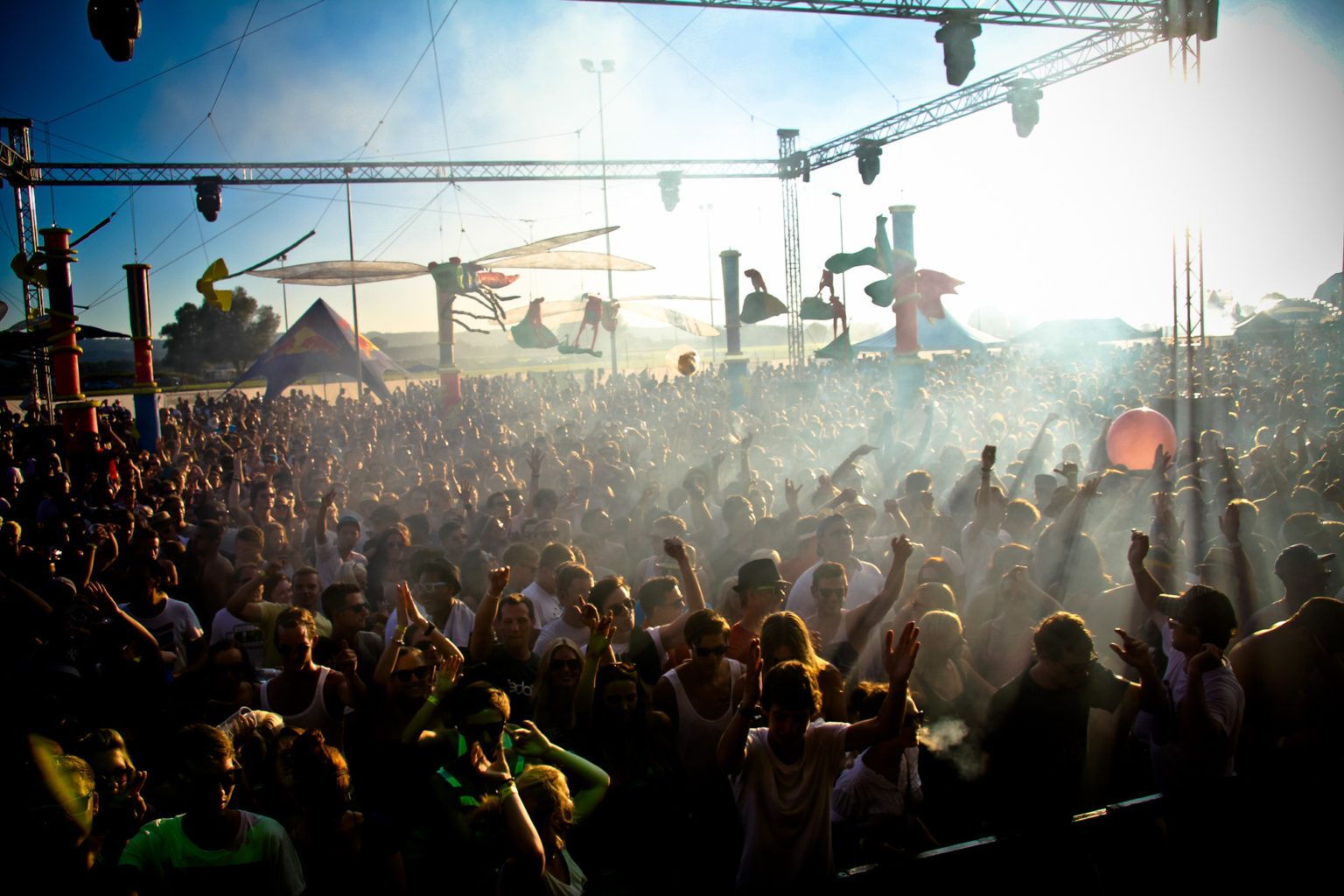Science is making a ‘big bang’ at festivals
British Summertime- a time for relaxing in the occasional sun, catching up with friends and for about four million of us, it’s festival season! Many people envisage British festivals to be full of drunk young people, sliding about in the mud, moshing to even the most relaxing music. But now, perhaps following on from the success of BlueDot festival held at Jodrell Bank observatory, more mainstream events are fast becoming much more of an overall experience for visitors. Latitude, one of the UK’s most popular festivals, gave their hedonists the chance to hear about cutting edge science this year, in line with the arts curator Tania Harrison’s theme ‘Come the Revolution’.

Bluedot Festival Image: Mike Peel / Wikimedia Commons
Next to the Faraway forest area at Latitude lay the Wellcome Trust arena, returning to the festival for it’s 6th year of collaboration. This year festival-goers had to opportunity to listen to unpublished research in science from a talk on ‘the rules of unruliness’ to a debate on ‘Technology vs. The Human Revolution’. More interactive aspects included a workshop on mindfulness and even a chance to ‘Read your DNA live’. One highlight for Jeremy Webb, a NewScientist writer, was a talk on the Immune System by Professor Daniel Davis and Dr Natalie Riddell. Billed as a discussion on ‘Immunity and the Health Revolution’, these specialists looked at how alongside the increase in life expectancy, we are seeing an increase in the time a person experiences ill health. This was concluded by pondering what preventative measures can be taken to avoid an imminent health crisis.
This year festival-goers had to opportunity to listen to unpublished research…
Latitude is not the first festival to fuse a traditionally arts-themed environment with science. Deer Shed in North Yorkshire has a science tent mainly aimed at children, where they can make their own slime. Even closer to home is Also festival in Warwickshire, where ‘Tea and Theoretical Physics’ is on the menu along with a rocket workshop and a talk on genetics that revealed that we are all related to King Edward III!
Another link with royalty is from Brian May, lead guitarist of the rock band Queen, who also has a BSc in Physics and PhD in Astrophysics from Imperial College, London. Set amongst the stars in Norway, Starmus festival was created by Brian and fellow astrophysicist Garik Israelian to “celebrate science and the arts with the goal of bringing an understanding and appreciation of science to the public at large”. Keynote speakers from the past four festivals include Stephen Hawking and Neil Armstrong, as well as musicians such as Steve Vai and Hans Zimmer.
Science and the Arts have not always been so seamlessly intertwined…
Science and the Arts have not always been so seamlessly intertwined, with Brian May going so far as to say, “as a child I was forced to choose between art and science as if they were mutually incompatible”. Nowadays however, we are now being given the opportunity to explore science in a lively environment, with the initial appeal from headline music acts drawing in the crowds- approximately 60% of which are under the age of 30. Are we seeing the beginnings of a new medium of engaging science with young people?

Comments